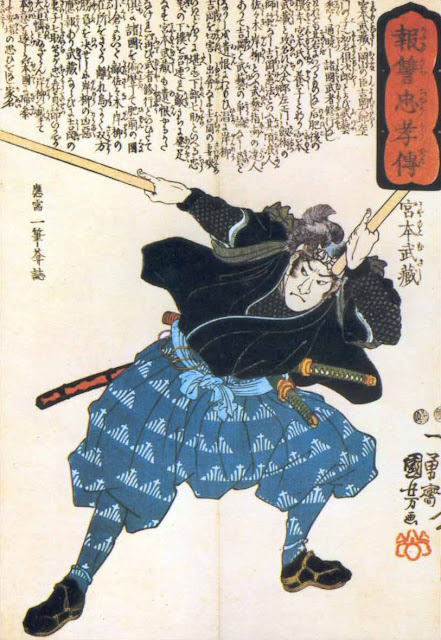Yours truly tries very hard to not assume as we all know what the word means, right? This is difficult as Taoists, students of Zen and Buddhists ascribe to the notion of living in the present as this prevents one from falling into the trap of the word assume. This, being in the present, also applies to The Art of War and the OODA loop as all of these disciplines readily acknowledge the limits of knowledge, something addressed quite frequently in BRT as Heisenberg's uncertainty principle, in conjunction with Godel's incompleteness theorems rule in conjunction with the probabilistic nature of Quantum Mechanics proving that certitude is but an illusion. With this in mind, The Book of Five Rings continues this policy of situational awareness and the knowledge of self at personal level articulated by Miyamoto Musahi of Japan, a true master in the art of the sword.
- The Character for Way is read "Michi" in Japanese or "Do" in Chinese-based reading. It is equivalent to the Chinese "Tao" and means the whole life of the warrior, his devotion to the sword, his place in the Confucius-coloured bureaucracy of the Tokugawa system. It is the road of the cosmos, not just a set of ethics for the artist or priest to live by, but the divine footprints of God pointing the Way.
- Strategy: "Heiho" is a word of Chinese derivation meaning military strategy. "Hei" means soldier and "Ho" means method or form.
- Homage to heaven: "Ten" or heaven means the Shinto religion, Shinto — a word compounding the two characters "Kami" (God) and "Michi" (Way"-is the old religion of Japan. In Shinto there are many Holies, gods of steel and fermentation, place and industry, and so-on, and the first gods, ancestors to the Imperial line.



No comments:
Post a Comment